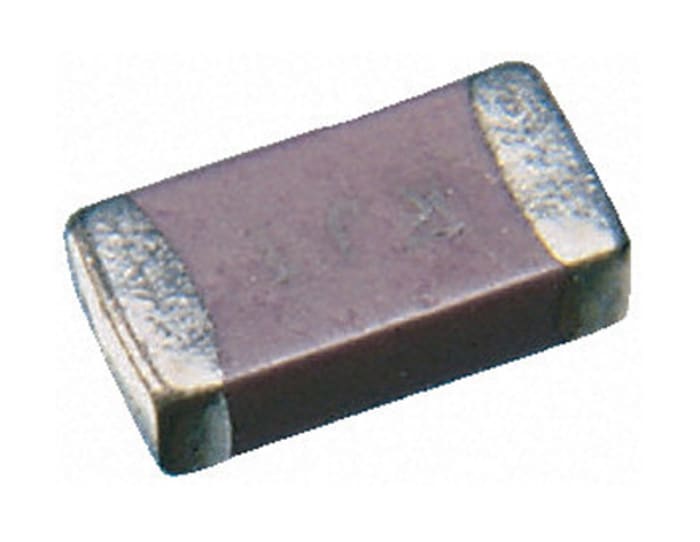Techniniai dokumentai
Specifikacijos
Markė
MurataCapacitance
2.2µF
Voltage
10V dc
Package/Case
0805 (2012M)
Tvirtinimo tipas
Surface Mount
Dielectric
X7R
Tolerancija
±10%
Matmenys
2 x 1.25 x 1.25mm
Ilgis
2mm
Gylis
1.25mm
Aukštis
1.25mm
Serija
GRM
Minimali darbinė temperatūra
-55°C
Terminal Type
Surface Mount
Maksimali darbinė temperatūra
+125°C
Kilmės šalis
Japan
Produkto aprašymas
Murata GRM 0805 X5R, X7R and Y5V Dielectric
0805 Range
Nickel barrier terminations covered with a layer of plated Tin (NiSn). Applications include mobile phones, video and tuner designs, COG/NPO is the most popular formulation of the "temperature compensating", EIA Class I ceramic materials, X7R, X5R formulations are called "temperature stable" ceramics and fall into the EIA Class II materials, Y5V, Z5U formulations are for general purpose use in a limited temperature range, EIA Class II materials; these characteristics are ideal for decoupling applications.
Sandėlio informacija laikinai nepasiekiama.
Patikrinkite dar kartą.
€ 0,112
Each (In a Bag of 50) (be PVM)
€ 0,136
Each (In a Bag of 50) (su PVM)
50

€ 0,112
Each (In a Bag of 50) (be PVM)
€ 0,136
Each (In a Bag of 50) (su PVM)
50

Techniniai dokumentai
Specifikacijos
Markė
MurataCapacitance
2.2µF
Voltage
10V dc
Package/Case
0805 (2012M)
Tvirtinimo tipas
Surface Mount
Dielectric
X7R
Tolerancija
±10%
Matmenys
2 x 1.25 x 1.25mm
Ilgis
2mm
Gylis
1.25mm
Aukštis
1.25mm
Serija
GRM
Minimali darbinė temperatūra
-55°C
Terminal Type
Surface Mount
Maksimali darbinė temperatūra
+125°C
Kilmės šalis
Japan
Produkto aprašymas
Murata GRM 0805 X5R, X7R and Y5V Dielectric
0805 Range
Nickel barrier terminations covered with a layer of plated Tin (NiSn). Applications include mobile phones, video and tuner designs, COG/NPO is the most popular formulation of the "temperature compensating", EIA Class I ceramic materials, X7R, X5R formulations are called "temperature stable" ceramics and fall into the EIA Class II materials, Y5V, Z5U formulations are for general purpose use in a limited temperature range, EIA Class II materials; these characteristics are ideal for decoupling applications.

